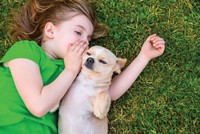Advertisement
Grab your lab coat. Let's get started
Welcome!
Welcome!
Create an account below to get 6 C&EN articles per month, receive newsletters and more - all free.
It seems this is your first time logging in online. Please enter the following information to continue.
As an ACS member you automatically get access to this site. All we need is few more details to create your reading experience.
Not you? Sign in with a different account.
Not you? Sign in with a different account.
ERROR 1
ERROR 1
ERROR 2
ERROR 2
ERROR 2
ERROR 2
ERROR 2
Password and Confirm password must match.
If you have an ACS member number, please enter it here so we can link this account to your membership. (optional)
ERROR 2
ACS values your privacy. By submitting your information, you are gaining access to C&EN and subscribing to our weekly newsletter. We use the information you provide to make your reading experience better, and we will never sell your data to third party members.
Genomics
Newscripts
Exploring boring people and dog breeds’ behavior
by Corinna Wu
May 20, 2022
| A version of this story appeared in
Volume 100, Issue 18
Studying a stereotype

All of us, at one time or another, have probably encountered someone we might describe as dull, uninteresting, and having no sense of humor—in other words, boring. But the perception that some people are boring is, ironically, an interesting subject of psychological study. A recent paper, “Boring People: Stereotype Characteristics, Interpersonal Attributions, and Social Reactions,” dug into the content of the “boring” label and what its implications might be (Pers. Soc. Psychol. Bull. 2022, DOI: 10.1177/01461672221079104).
“Stereotypes are impactful. People have ideas about other people and groups,” says study coauthor Eric R. Igou, head of the Psychology Department at the University of Limerick. “These ideas shape the way we relate to others, and how we relate to others creates realities for all involved.”
Igou, along with Wijnand A. P. van Tilburg of the University of Essex and Mehr Panjwani of the London School of Economics and Political Science, carried out a series of studies to see how boring people are perceived socially. Participants listed stereotypical occupations, hobbies, and characteristics of boring people, and another group rated the items on the list. The fields of work rated as most characteristic of boring people were data analysis, accounting, and taxation and insurance. Hobbies that topped the list of yawners were sleeping, religion, and watching TV.
The researchers then put together vignettes of hypothetical people with the most highly to least highly rated attributes and tested how dull the study participants thought those people were. The researchers also evaluated how strongly study participants would want to avoid such people, asking how much they would need to be paid to hang out with them. Not surprisingly, the prospect of spending time with a highly boring person required a lot more greasing of the palm.
“We found that ‘boring people’ are not seen as either warm or competent, which puts those folks at a real disadvantage,” Igou tells Newscripts. “And we found that people actively avoid boring people, confirming what we found in earlier research.” This social avoidance could have repercussions, not only for the individuals labeled thusly but also for society, which needs people to perform these stereotypically boring jobs, the authors say.
Stereotypes are not set in stone, though. Among the occupations rated as least characteristic of boring people were science and—gratifyingly to this Newscriptster—journalism. Perceptions, such as how science and academia are currently seen by people, can change over time, Igou says. “What might be boring at one stage might be hip 20 years later.”
Challenging canine cliches

Stereotyping doesn’t just happen to people—even our furry friends experience it. A common belief is that dog breeds are associated with characteristic behavioral traits—golden retrievers are supposed to be friendly, while greyhounds are more independent, for example. A recent genomics study challenges that idea (Science 2022, DOI: 10.1126/science.abk0639).
Kathleen Morrill and Elinor K. Karlsson of the University of Massachusetts Chan Medical School and their colleagues surveyed 18,385 dog owners—roughly half of whom had purebred dogs and half had mixed-breed dogs—about their pets’ behavioral traits and also sequenced the DNA of 2,155 dogs. Their analysis showed that breed wasn’t a reliable predictor of behavior for individual dogs and that it explained just 9% of the variation seen.
“A dog’s personality and behavior are shaped by many genes as well as their life experiences,” Karlsson says in a press statement. Behavioral traits are the result of thousands of years of adaptation, whereas modern dog breeds that embody particular physical traits came about less than 160 years ago.
Every dog owner knows that their pet is a unique individual—now they’ve got some science to back it up.
Please send comments and suggestions to newscripts@acs.org.




Join the conversation
Contact the reporter
Submit a Letter to the Editor for publication
Engage with us on Twitter